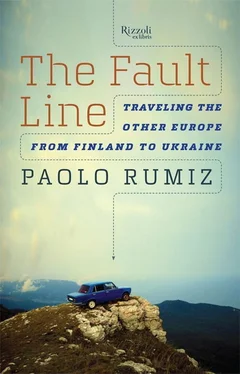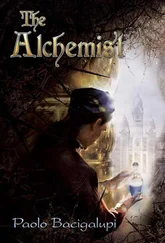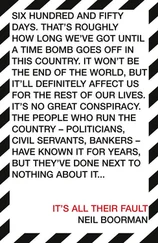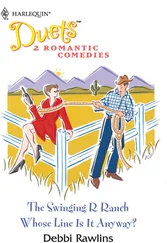That evening, the proprietor of the hotel, after moving me out of the infernal room and giving me another, tells me that the hotel was a kolkhoz, of which only the walls were left because everything else had been robbed after the fall of the Soviet Union. “I bought the stones and spent ten thousand dollars to make a hotel out of them. But I have to fight with those damn plants that you see outside there.” He takes us outside and shows us gigantic flowers, ten feet high, that besiege the grounds. “They were planted by the kolkhoz, to feed them to the cows so they would make more milk. They come from Siberia, and they are so happy to be here that they’ve become monsters. Now there are no more cows, but they are still here; they’ve invaded the mountains. You can’t get rid of them even with a flamethrower, and they’re poisonous for people.”
Who knows, maybe the devil that’s tormenting the Carpathians has taken cover in this killer plant. Already, on the Arctic Ocean, I’ve met a giant killer crab from the depths, brought there from Asia in the name of progress. Maybe the demon is globalism, which has made its nest here, too. It’s hard to sleep in these mountains. The Austrian train goes by in the middle of the night.
In the mountain range where the vampires live, local trains come and go, to and from various heads of the line, with nonexistent connections. Especially in Ukraine. But that’s the nice thing about it. It happens that you get off in a place called Yablunka (Apple Tree), in a countryside resounding with cackling hens, and you have three hours to wait for the next train, which might take you only twelve miles farther. But the stop-off offers you the opportunity to meet the signalman, drink a tea together, and see a group of young people on horseback, bareback like Andalusians, riding alongside the tracks. You can’t understand the Carpathians without the syncopated rhythm of the train known as Elektrichna.
At Turka, I stop in for a beer at the blue shack that hosts the Klub for Afghanistan vets. In Syanki, a Ukrainian soldier stops us. We are the only passengers to get off the train with bags, and those bags indicate that we are engaged in a long journey on a train that is used only by local passengers. The man in uniform wants to understand.
“Where are you going?”
We reply, “To Uzhgorod.”
“The next train is the right one.”
“We know that,” I respond, “but we want to see the border. That’s what we’re here for.”
“There is nothing to see here. And above all there is nothing to photograph.”
I explain that I’m interested in this place because my grandfather fought here in 1914, against the Russians.
“Passport, please.”
We give him our documents, and the soldier gets even more upset. The importance of our visas, together with the poverty of our clothing, confounds him. He can’t figure us out.
“You can’t see the border. There’s a cordon here.”
“What cordon?”
“The frontier cordon. The security strip.”
I ask him how wide it is.
“Eighteen miles.”
We try to buy some time in a tavern frequented by Gypsies, smugglers, and the forgotten. The store is interred, has no windows, and no ventilation. Outside, a groaning of engines, wind, dust. Inside, beer, cheese, bread, cigarettes, and turbo–folk music that sounds Dalmatian and gives me once again the false sensation of being around the corner from home. Instead, I’m very far away, trapped in the damned Carpathian elbow, which inscrutable powers have decided to turn into a dead track. Monika asks the customers how it was under the USSR.
“Nothing has changed. The barbed wire fences are still the same ones.” An old man is even more pessimistic: “Today, it’s even worse, the cordon is much wider.” I notice that even civilians are wearing camouflage. Since 1914, history hasn’t unloaded anything here except armies and uniforms.
At Uzhok, among bales of fresh hay, we encounter a freight train pulled by four gigantic engines, and as we wait for the next passenger train, we chat with the signalman, in a black uniform, red beret, and a wig. There is always a guardian angel, even in the most out-of-the-way place, and the signalman, having heard about our plan to skirt the Romanian border all the way to Odessa, gets upset and warns us that the train lines along the Tibiscus are called “desire.” And, anyway, if our destination is Odessa, “you have to go back to Lviv.” But he underestimates our stubbornness, and he watches us desolated as we head for the pass. We climb some more, where there is a monument to the fallen Russians and Austro-Germans of the Great War. Another frontier or, better, another front. The one where my grandfather, wearing an Austrian uniform, fought against the Russians of the czar.
The diesel engine bites into the slope, a barefoot grandma in a meadow waves her handkerchief, mountaineers run down from the villages to catch it. The Elektrichna has cars with wooden benches and it carries children, customs officers, lovers, and peasants. It whistles, shakes, creaks, whines, winds around itself, flirts with Poland, and shows you outside the window the Schengen Area guard huts and barbed wire, as solid as the Soviet ones. At Minjova, the station is a small building ten feet away from the barbed wire, but behind it is a Lilliputian world of little houses, chimneys, people, cows, and tunnels like the plastic villages of model trains. Everywhere you look, people intent on mowing the hay.
On the sliding door at the end of the car, a poster: under a pair of lenses with, reflected inside, two little boys in tears, the words DON’T PUT ON THE ROSE-COLORED GLASSES OF WORK ABROAD. It’s the first sign of a country dramatically depopulated by emigration. I ask the ticket taker how many miles it is to Uzhgorod. She answers, “Sixty-one.” I ask how long it will take. “Four hours.” Why so long? “But it’s sixty-one miles!” she replies, her gaze darkening. And we’re already descending toward Uzhgorod, toward Hungary, in a rain forest heavy with vapors, swarming with microscopic, implacable mosquitoes.
Pannonia [7] Pannonia is the name of a province of the Roman Empire bounded on the north and east by the Danube and occupying the territory of present-day western Hungary, eastern Austria, northern Croatia, northwestern Serbia, Slovenia, western Slovakia, and northern Bosnia and Herzegovina.
is very close; the Balkans, too. Like a stork, I can feel growing inside me the migratory instinct to fly directly south, following the meridian, toward Belgrade and Greece. But it is right here that the vertical border of fortress Europe makes a brusque turn to the east to outline Romania all the way to the Black Sea.
The faces on board have changed again; they’re pointier. This is the world of the Ruthenians, another minority that has been shaking its fists after the fall of Soviet homogenization. Here’s Nykola, eighty-three, a former orchestra director, from Lviv, thick white hair and deep eyes of someone who has seen it all. He spent his adolescence in Siberia, then in Kazakhstan, manufacturing bullets for the Red Army at the front. But in the meantime, he had already formed a chorus.
“The Russians,” he grumbles, “didn’t bring us anything good.” I say that up to now in Russia, we have only met good people. “Well, sure,” he says. “On their home turf they’re fine.” And how is life in Lviv? “Worse. It’s in a state of total anarchy. And the oligarchs have got their hands into everything.” I explain our journey to him, and his eyes pop out. “You could have gone by plane.” I reply that if I hadn’t taken a train, I wouldn’t have met him. He smiles. Then he sings an aria from Der Rosenkavalier .
Ferns, fog, mineral-water springs, paleosocialist factories in the rain. An old man climbs aboard with a pail full of porcini mushrooms to sell. He’s wearing short pants and rain boots. Outside it’s hot; inside it’s a sauna. The train keeps getting more crowded. Nykola: “If you knew how much I love traditional Italian songs… and then, ah, Verdi!” He intones “Catarì,” then “Il soldato innamorato,” and then “O sole mio.” He explains that the Slavs—“we Slavs,” he underlines, including the Russians now, too—adore this kind of music. He writes down meticulously on a sheet of paper his address in Lviv and offers it to us. “Come. It’s really not so far from Italy.”
Читать дальше












